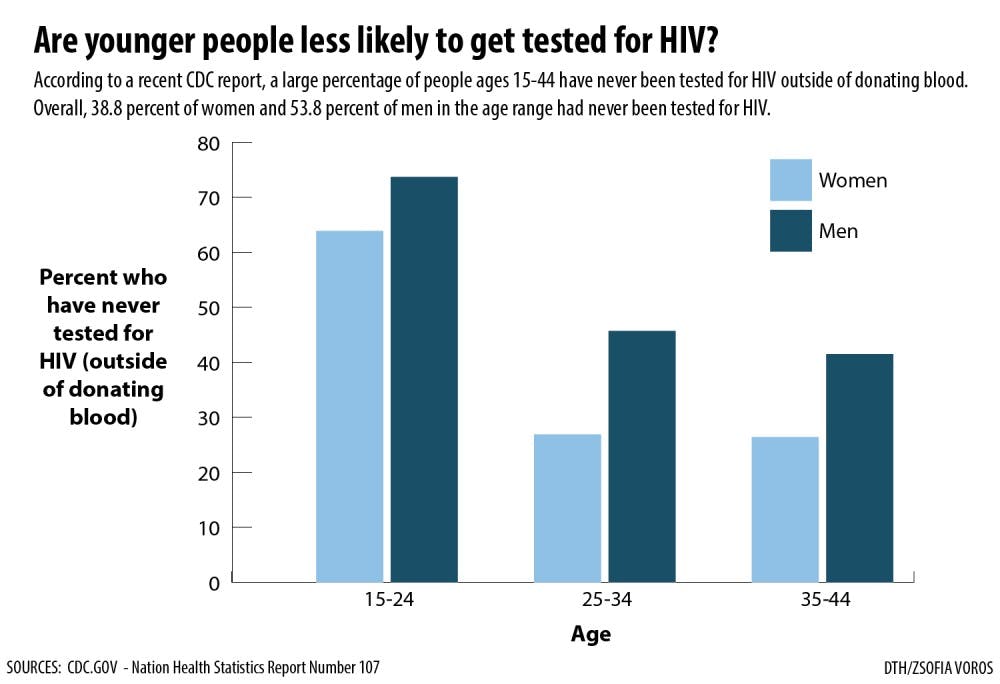About 4 in 10 women and 5 in 10 men have never been tested for HIV aside from donating blood, according to a report by the Centers for Disease Control and Prevention.
The CDC report, released Jan. 25, said the most common reason both men and women cited was that they were unlikely to have been exposed to HIV. Additionally, many participants said they had never been offered an HIV test.
Dr. Arlene Seña-Soberano, an infectious disease physician at UNC and medical director at the Durham County Department of Public Health, said the statistics surprised her because of the work she has done to promote HIV testing locally and ensure it is part of routine health care.
“We have to understand the statistics in this survey in the context of the sample,” she said. “There’s potentially regional differences.”
The data in the report was collected through in-person interviews from September 2011 to September 2015 with nationally representative samples. Over 9,000 men and 11,000 women aged 15 to 44 were sampled.
Durham Knows, an initiative under the Partnership for a Healthy Durham that Seña is involved with, has done work throughout the area to promote testing and destigmatize HIV and other sexually transmitted infections. In areas with programs like this, more people are likely to get HIV testing than what is reported by the CDC.
Seña said getting information about HIV to younger people may help the fact that many individuals do not perceive themselves to be at risk for HIV.
“It’s not really been much of a concern from the public’s perspective," she said. "But from the health care perspective, HIV is clearly an infection that’s lifelong and can be associated with morbidity and mortality.”
Christina Adeleke, communications and development coordinator for the NC Aids Action Network, said it's problematic to hear the CDC’s statistics — especially today.



